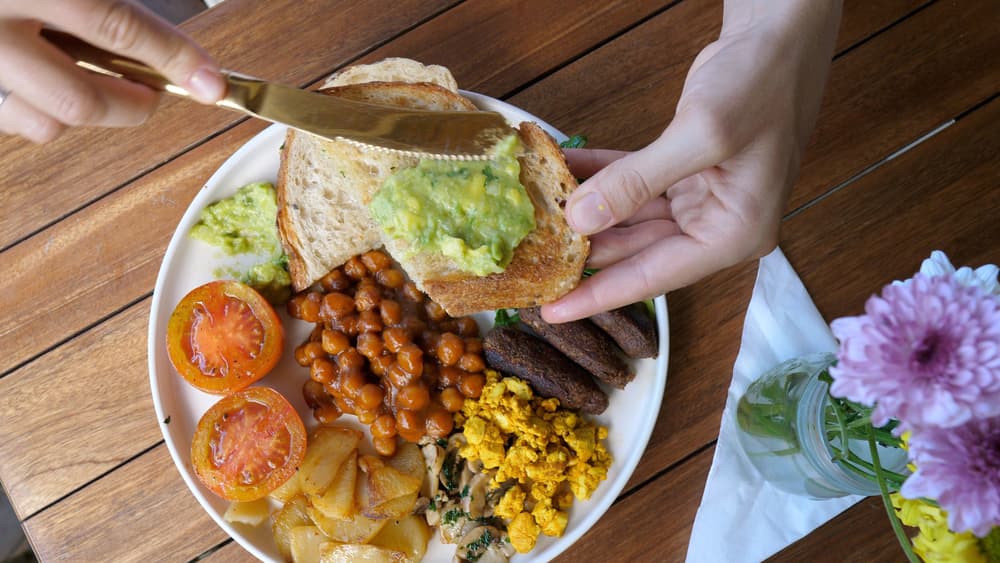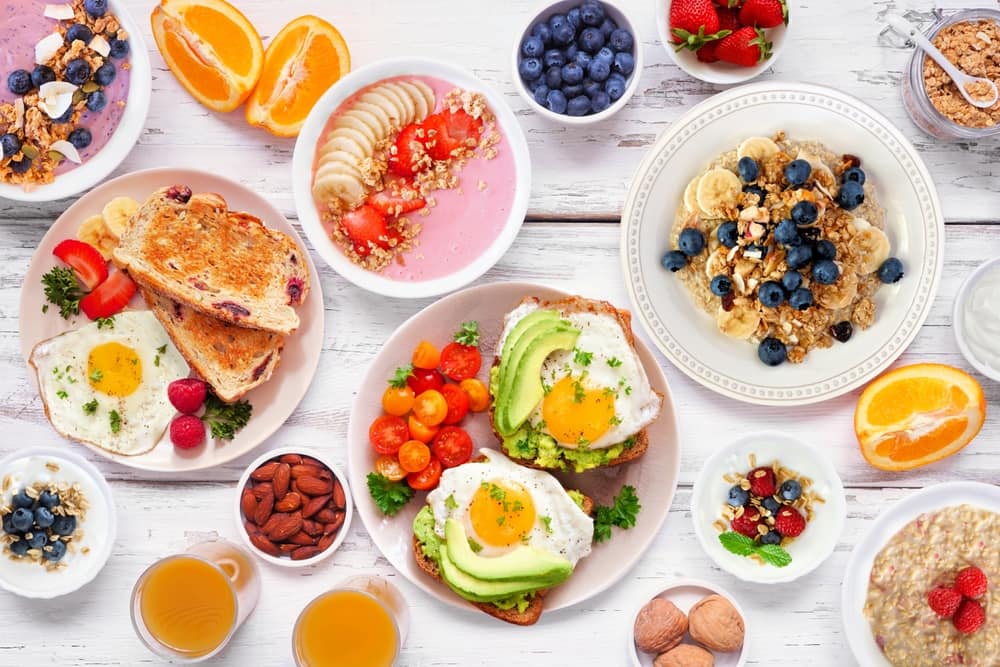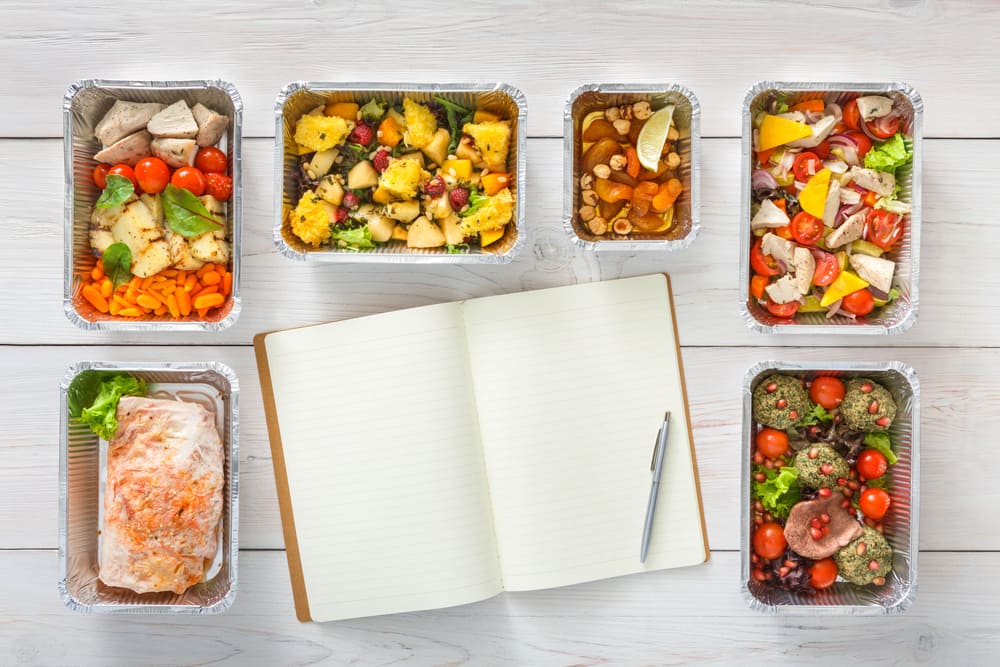How to create a balanced meal plan for beginners
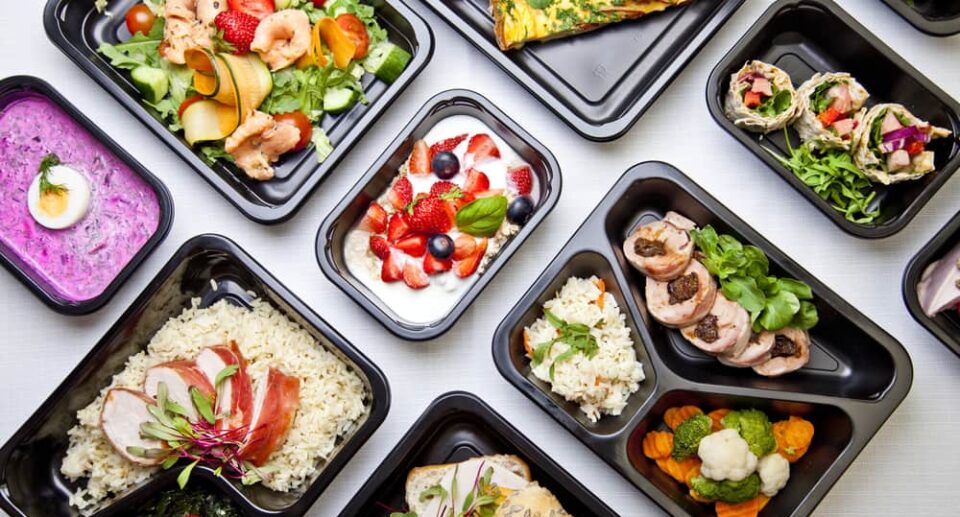

How to create a balanced meal plan for beginners — Simple steps to plan healthy and nutritious meals with ease. Living in today’s hurried world, it is hard to spare time for healthy eating. Besides that, a number of people believe healthy eating is a daunting task because they have to balance work, family and leisure. But don’t be afraid because you no need to do a lot of planning and it still can be extremely helpful for your health situation. Whether you’re looking to lose weight, gain muscle, or just eat better overall, a balanced meal plan can provide you with the structure you need to succeed.
In this beginner’s guide, we’ll show you how to create a balanced meal plan that works for your goals, schedule, and taste buds. You’ll find tips for meal prep, grocery shopping, recipe ideas, and more. Plus, we’ll share inspiring stories from people who successfully transformed their health with meal planning. Let’s get started!
What is Meal Planning and Why is Healthy Meal Planning Important?
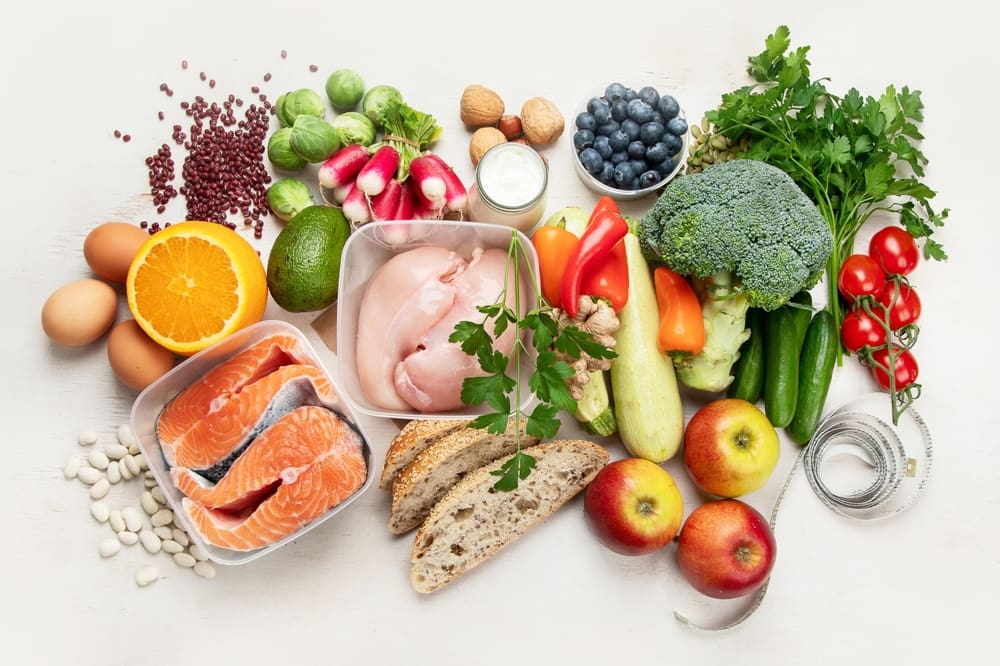

The Basics of Creating a Balanced Meal Plan for Beginners
Meal planning involves deciding ahead of time what meals you’ll prepare during the week. This can include everything from breakfast to dinner, snacks, and even drinks. Planning meals ahead of time helps you save money, reduce food waste, and make healthier food choices, as you can control what goes into your meals.
Benefits of Healthy Meal Planning for Balanced Nutrition and Weight Management
- Healthy Eating: By planning meals in advance, you ensure that you are eating a balanced diet that includes all the necessary nutrients—protein, carbs, fats, vitamins, and minerals.
- Time-Saving: With everything prepped and organized, you won’t have to worry about scrambling for healthy options during the week.
- Cost-Efficiency: By buying groceries in bulk and sticking to your meal plan, you avoid impulse buys and reduce food waste.
- Weight Loss & Weight Gain: Whether your goal is weight loss or weight gain, meal planning can help you control portion sizes, avoid mindless snacking, and stay on track.
How to Create a Balanced Meal Plan That Fits Your Goals and Lifestyle


Setting Your Health and Fitness Goals for Meal Planning Success
Meal planning should start with a clear goal, the one you want to achieve. Do you want to lose weight, build muscle, or is it just about eating better than you do now? Your purpose is the defining factor among the options for the best regime. For example:
- Weight Loss: If your goal is weight loss, focus on portion control, lean proteins, fiber-rich vegetables, and healthy fats.
- Weight Gain: If you’re aiming for weight gain, you’ll want to include nutrient-dense foods with higher calories like whole grains, healthy fats, and protein-rich foods.
- Healthy Eating: For general health, focus on a balance of fruits, vegetables, lean protein, and whole grains.
Understanding the Essential Components of a Balanced and Nutritious Diet
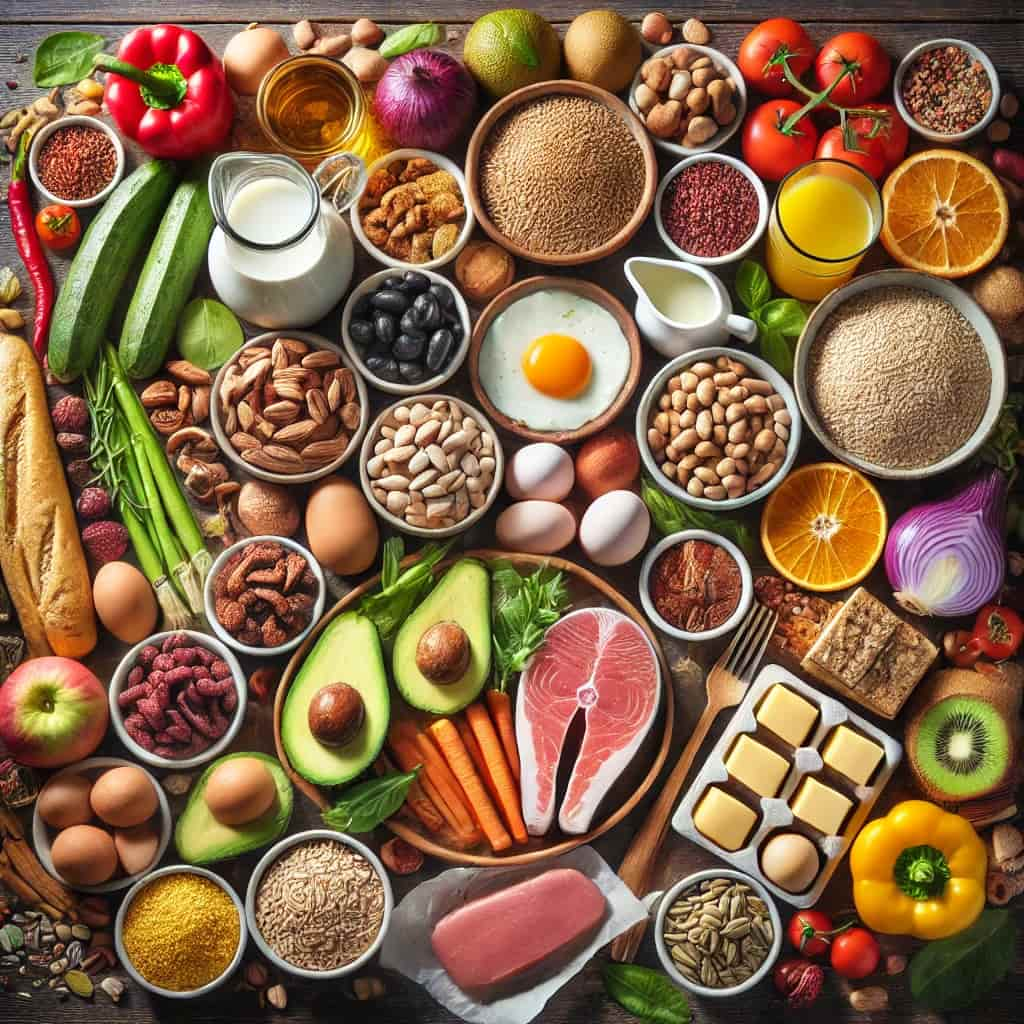

A balanced meal should include:
- Protein: Helps build and repair tissues. Include lean meats, eggs, tofu, legumes, and dairy products.
- Carbohydrates: Your body’s primary energy source. Choose whole grains like brown rice, quinoa, sweet potatoes, and oats.
- Fats: Healthy fats are essential for hormone function and energy. Avocados, nuts, seeds, and olive oil are great choices.
- Fiber: Helps with digestion and keeps you feeling full longer. Vegetables, fruits, legumes, and whole grains are fiber-rich foods.
Step-by-Step Guide to Planning Balanced Meals for the Week
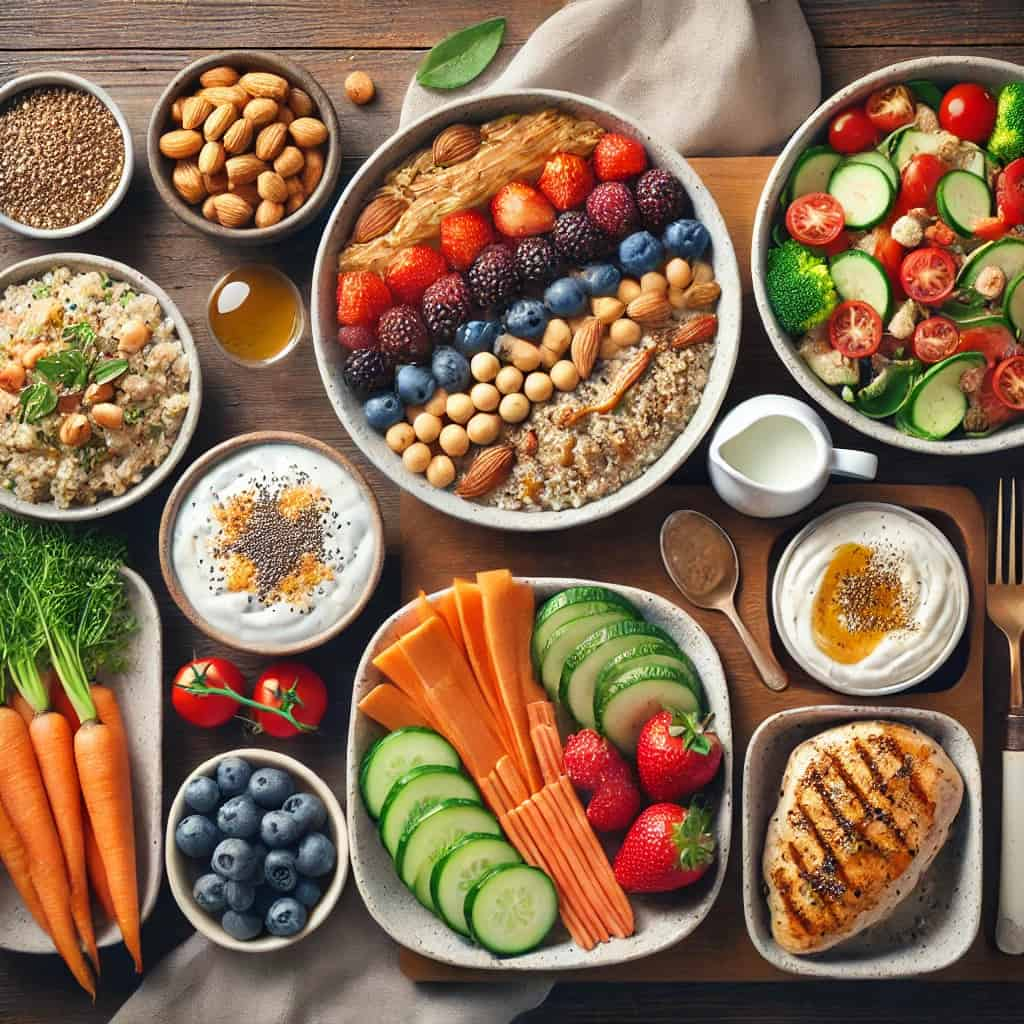

Once you’ve set your goals and understood the components of a balanced diet, it’s time to start planning your meals. Here’s how to structure your week:
- Choose Your Meals: Start with breakfast, lunch, dinner, and snacks. You can reuse ingredients for multiple meals to save time and money.
- Example:
- Breakfast: Oatmeal with chia seeds, almond butter, and berries.
- Lunch: Quinoa salad with chickpeas, cucumber, tomato, and olive oil dressing.
- Dinner: Grilled chicken breast, sweet potato, and steamed broccoli.
- Snacks: Greek yogurt with nuts, fruit, or hummus with carrots.
- Use Recipe Ideas: Don’t be afraid to get creative with your recipes. You can find plenty of simple, balanced meal ideas online or in nutrition books. For example, Dr. William Li’s Eat to Beat Disease emphasizes how certain foods can help prevent diseases and promote overall health, like leafy greens and berries.
- Plan for Leftovers: Plan to cook in batches so you can have leftovers for lunch the next day or freeze meals for later. This saves time and reduces food waste.
Make a Grocery List
Once you’ve planned your meals, make a list of all the ingredients you’ll need. This is the key to successful grocery shopping—sticking to the list will help you avoid buying unnecessary items that aren’t part of your plan.
- Tip: Shop the perimeter of the store for fresh produce, meat, and dairy, and hit the aisles for pantry staples like grains, canned beans, and spices.
Meal Prep Tips to Simplify Your Week
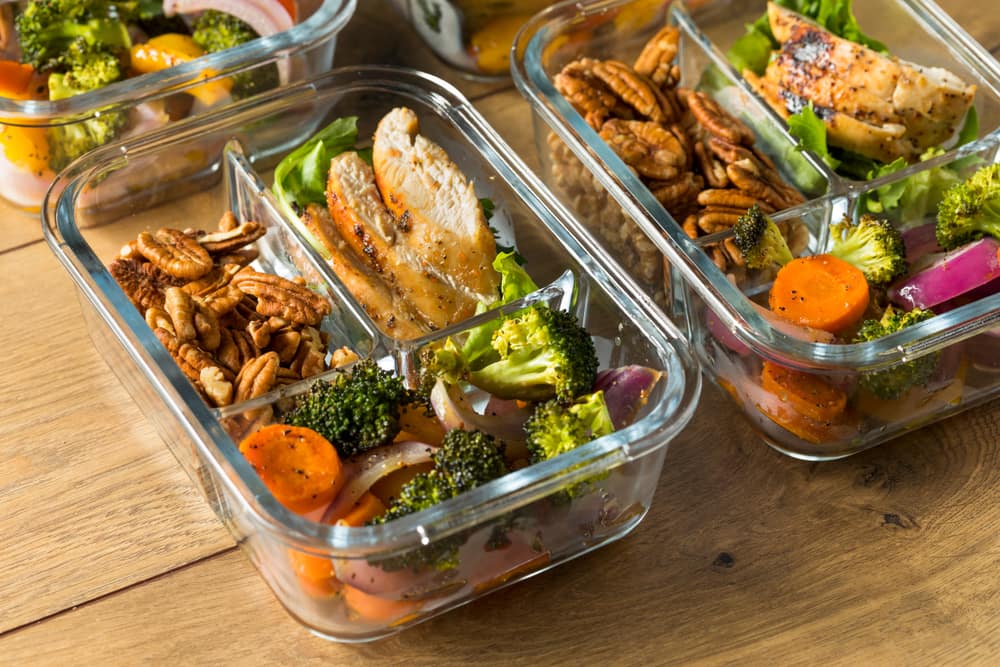

Meal prepping is so fundamental for staying on course with a healthy diet. By setting aside just a few hours every week to plan and make your meals beforehand, you can accomplish two things: one, you can get back those lost hours spent on the stove, and two, you can also cut off the unnecessary fretting about what to eat and which no less importantly, you can regularly have a good supply of foods on hand so that you don’t underestimate your real hunger.
1. Cooking in Bulk for Balanced Meals Throughout the Week
One way in which you can save time and ensure that you have enough for the week is to cook large amounts of food at one time then prepare them for an entire week. You can start off with some staple foods such as grains (quinoa, brown rice, oats), protein (chicken, turkey, tofu), and vegetables (broccoli, sweet potatoes, spinach). When it is cooked, divide it into batches and store it in containers for convenient, ready access to your meals during the week. Hencewise, you can experiment with ingredients and choose different meals every day without spending time cooking.
2. Organizing and Labeling Prepped Meals to Stick to Your Meal Plan
To keep things simple, organize your prepped meals by day or by meal type. You can use clear containers and label them with the day of the week or “lunch,” “dinner,” etc. This ensures you know exactly what to grab when you’re in a rush. It also helps you stick to your meal plan without getting overwhelmed by too many choices.
3. Preparing Healthy Snacks Ahead of Time to Avoid Junk Food


Snacking can be a challenge, but when you prep snacks in advance, it’s much easier to stay on track. Wash and cut veggies like carrots, cucumbers, and bell peppers, then portion them into containers. Pair them with hummus or guacamole for a tasty and nutritious snack. You can also portion out nuts or make snack bars to have on hand. Having healthy snacks ready to go will help prevent you from reaching for processed junk food when hunger hits.
4. Batch-Cooking Breakfast Ideas for Quick, Nutritious Starts
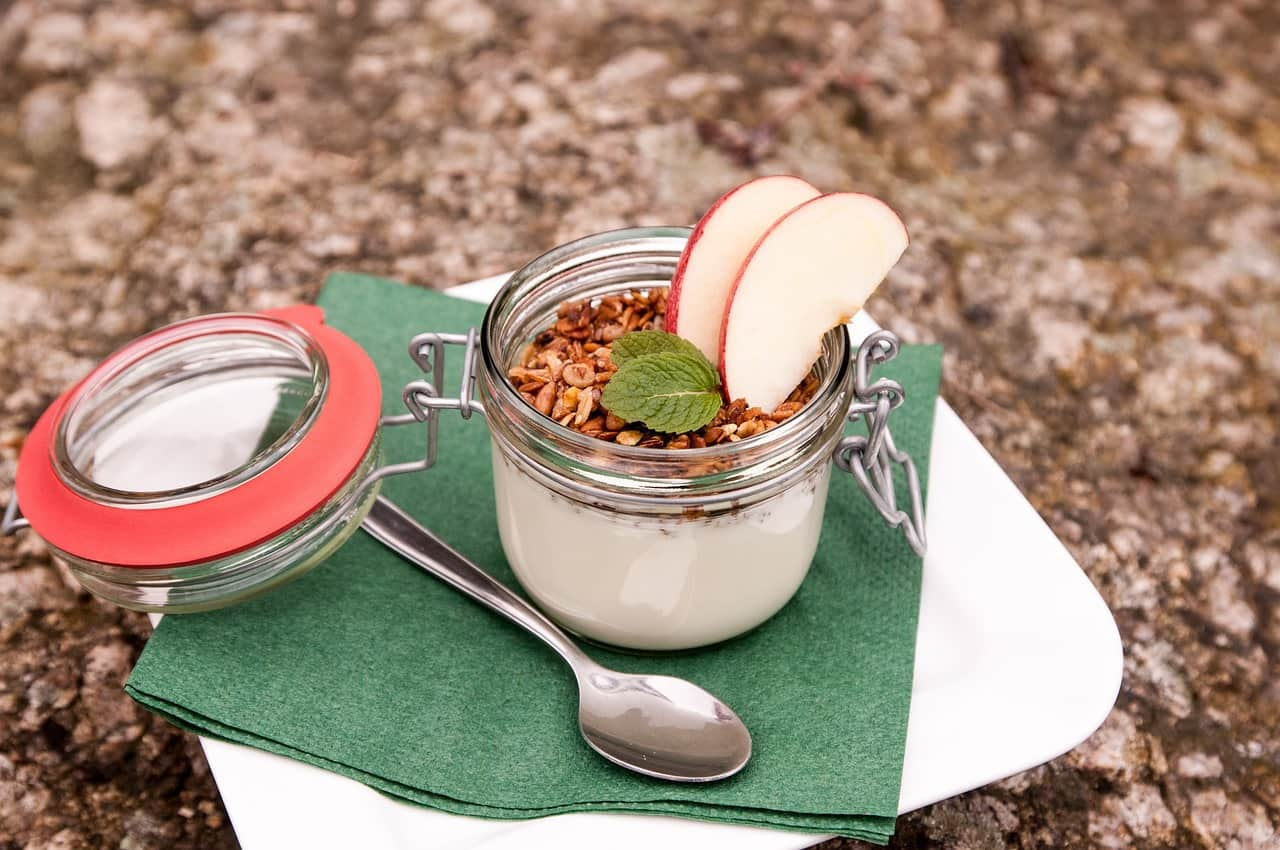

Breakfast can be one of the busiest times of the day, but it doesn’t have to be. Consider batch-cooking breakfast options like overnight oats or healthy muffins. These can be prepared in bulk and stored in the fridge or freezer for quick and easy access throughout the week. For example, overnight oats can be made the night before with chia seeds, almond milk, and fruit, giving you a nutrient-packed breakfast without the hassle.
5. Storing and Labeling Meals for Convenience and Food Safety
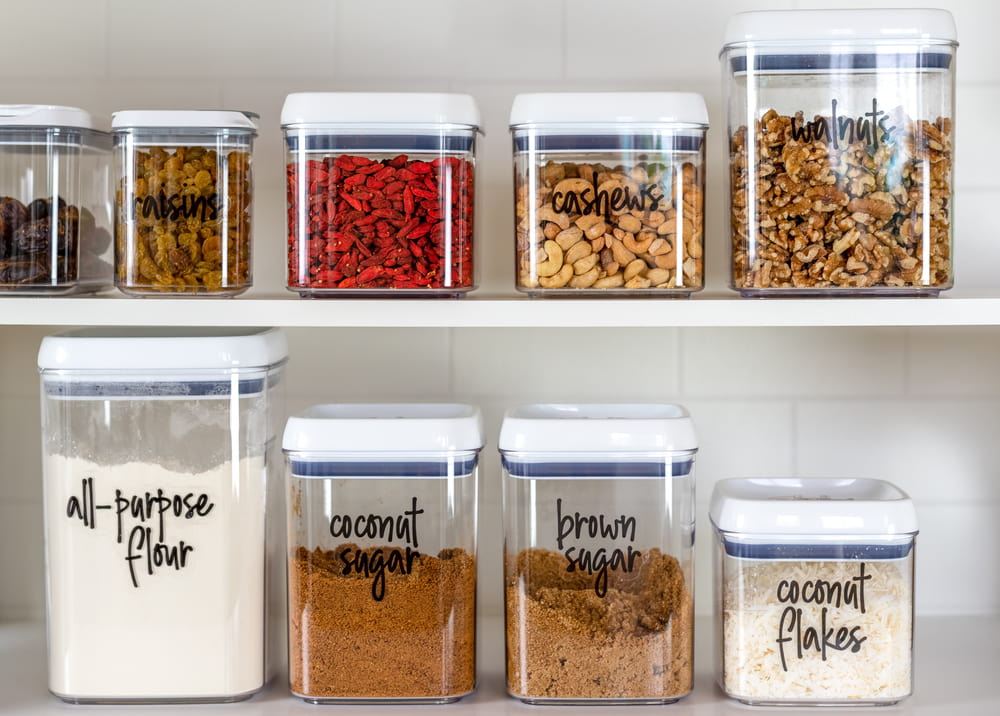

Proper storage has great benefits in the process of prepping a meal. Buy a set of glass containers to keep the meals you have already prepared. All-inclusive glass containers offer better food quality and can be re-heated in the microwave, which gives more time for you to enjoy your food. You may also want to put the date and the name of the meal on the labels of your containers so you will always be aware of the things you have and when to use them. How to create a balanced meal plan for beginners — Step-by-step advice for making nutritious meals simple and enjoyable.
With the implementation of these meal prep ideas, you would have an opportunity to make the most of your week while sticking to your diet goals, no matter if your focus is on weight loss, muscle gain, or a balanced diet.
Inspiring Stories: How Meal Planning Transformed These Beginners’ Health and Nutrition
1. Sarah’s Weight Loss Journey
Sarah, a 35-year-old office worker, struggled with weight gain for years. She was always busy with work and didn’t have time to cook. After learning about the importance of meal planning, she decided to give it a try. She started with simple, balanced meals that included lean proteins, veggies, and healthy fats. Over the course of 6 months, Sarah lost 25 pounds and felt more energized than ever.
2. Tom’s Muscle Gain
Tom, a 28-year-old fitness enthusiast, wanted to build muscle but struggled with knowing what to eat. After researching balanced meal planning, he focused on high-protein meals and increased his calorie intake with healthy fats and whole grains. With a well-planned meal prep schedule, Tom gained 15 pounds of muscle and saw a significant increase in strength.
3. Jessica’s Healthy Eating
Jessica, a 40-year-old mother of two, wanted to improve her family’s eating habits. She started meal planning to ensure her family ate a variety of healthy, nutrient-rich meals. With her balanced meal plan, Jessica not only improved her family’s health but also saved time and money on grocery shopping.
4. Mike’s Improved Health
Mike, a 50-year-old man, was diagnosed with high cholesterol and was advised to make changes to his diet. He turned to meal planning to incorporate more heart-healthy foods like oatmeal, salmon, and leafy greens. Within 3 months, his cholesterol levels improved, and he lost 10 pounds.
5. Emily’s Disease Prevention
Emily, a 30-year-old woman, wanted to prevent chronic diseases and stay healthy for the long term. She read Eat to Beat Disease and started eating more plant-based foods. By meal planning and focusing on anti-inflammatory foods like turmeric, leafy greens, and berries, Emily felt better overall and lowered her risk for disease.
Start Your Balanced Meal Plan Today: Easy Tips for Beginners to Eat Healthier and Stay on Track
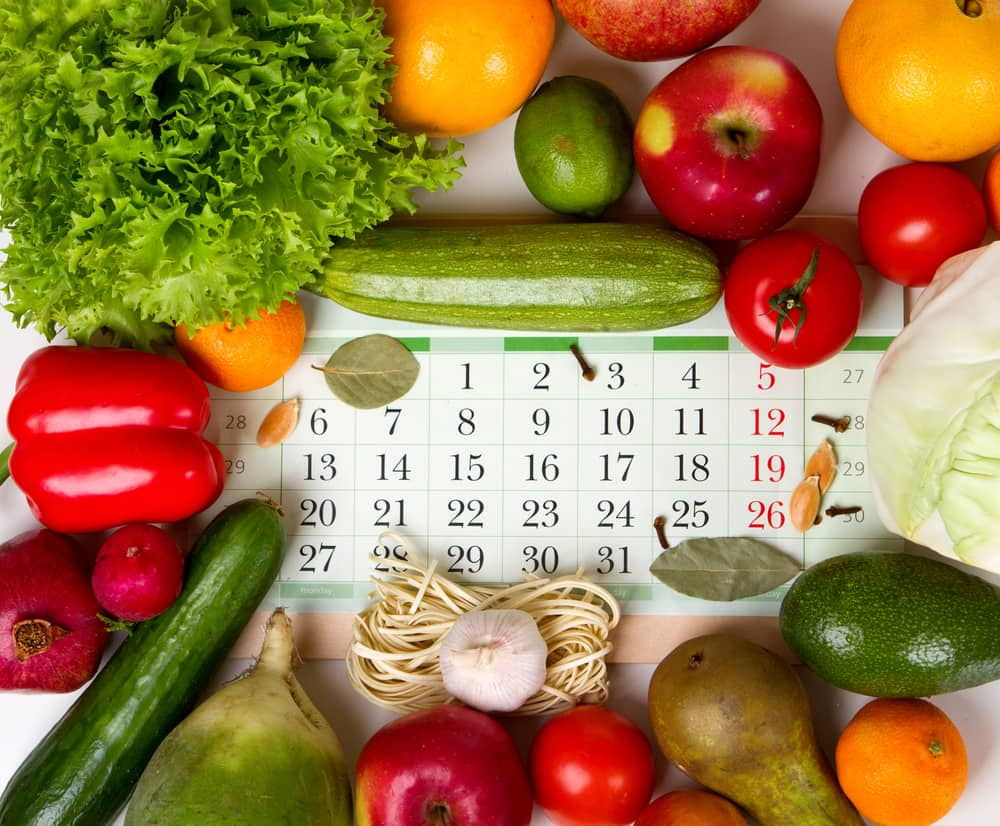

For a lot of people, figuring out what to eat may be stressful. Be it specific targets (objectives), overall understanding of a balanced ration, or preparing meals for the week, one can easily control their health and opt for healthier foods every day. It doesn’t matter whether you plan to shed extra pounds, build muscle, or merely eat healthier–a well-thought-out meal plan is the blueprint for your success. How to create a balanced meal plan for beginners — A practical guide to building nutritious meals for a healthier lifestyle. How to create a balanced meal plan for beginners — Easy tips to help you start eating well and stay on track.
How about starting small, making a grocery list, and not thinking ahead too far? With the addition of regularity and showing commitment, meal prep will be done automatically, and you will be on the right track to a longer, more energized life.

